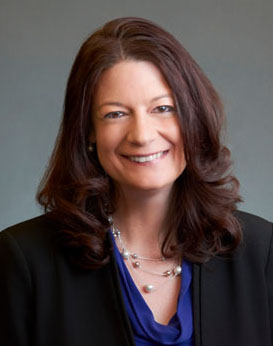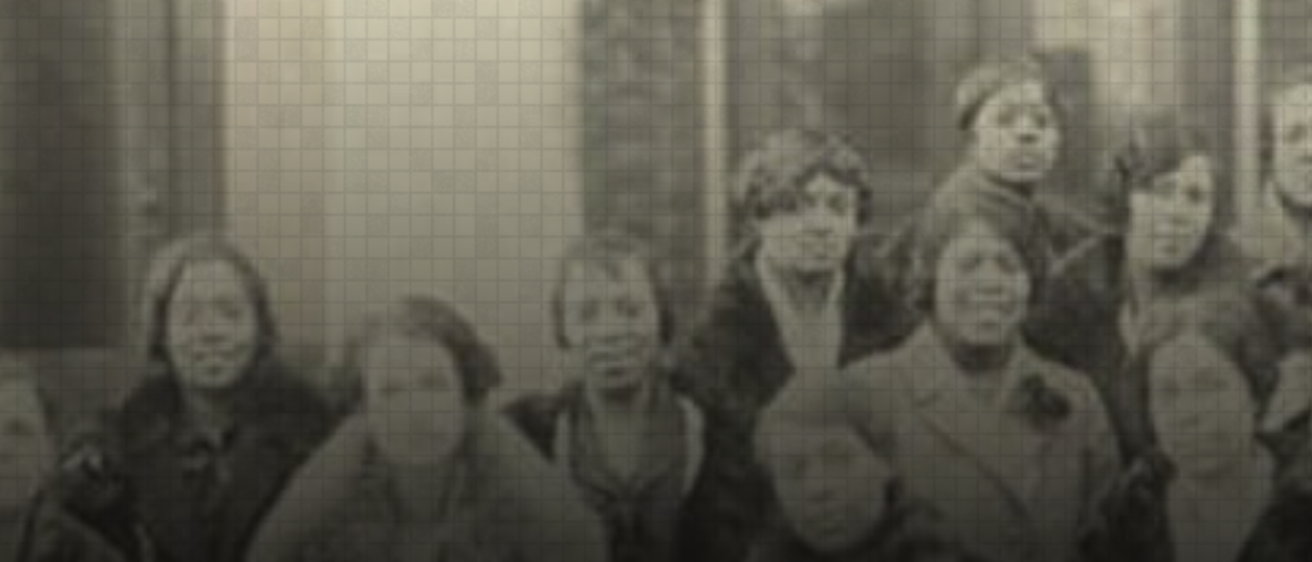
On Tuesday, March 1, 2022, Jeannette Gabriel, Director of the Schwalb Center for Israel and Jewish Studies at the University of Nebraska Omaha, will present the annual Women’s History Month Lecture, “Welcoming the Immigrants: Refugee Resettlement in Jewish Iowa.” The lecture, hosted by the Iowa Women’s Archives, will take place at 4:30 p.m. at the Iowa City Public Library, and will also be live-streamed.
Gabriel is a researcher, teacher, and curator with strong ties to Iowa. As a graduate assistant at the UI Libraries’ Iowa Women’s Archives from 2016–2019, she started the Jewish Women in Iowa Project, collecting materials from and building relationships with Jewish families across the Midwest. She’s had a fascinating career path, even before she entered the Social Studies Education PhD program at the University of Iowa—starting with her time at Smithsonian Associates, where she trained history teachers for the Teaching American History program.
We recently spoke to Dr. Gabriel about her community engagement work and upcoming lecture.
Please tell us about your current work at the Schwalb Center. What are you proudest of and/or most excited about?
JG: The Schwalb Center for Israel & Jewish Studies is an interdisciplinary academic center focused on expanding knowledge about Israel and Judaism on the university campus and beyond. The Schwalb Center hosts lectures from national and international scholars, hosts conferences, symposiums and workshops, and supports new scholarship from faculty and students. There are two main research and programming themes of the Center. The first is fostering shared prosperity in Israel through the development of shared society programs and projects. The second is to support and contribute to new research on Jewish history throughout the Midwest.
This spring, the Schwalb Center is featuring several programs featuring Israeli scholars and artists. Prof. Eugene Kontorovich, Antonin Scalia School of Law and Director of the Center for International Law in the Middle East at George Mason University. Prof. Kontorovich will present the 2022 Ruth and Phil Sokolof Lecture, "Three Modern Blood Libels about Israel: Vaccines, Evictions, and Apartheid." Later in the spring, the Center will feature a lecture by Tel Aviv composer, performer, and sound artist, Maya Dunietz, who explores the interconnections between music, visual art, performance, technological research, and philosophy.
The Schwalb Center will present events connected to Jewish Studies including several events with Alla Shapiro, MD, PhD, a Chernobyl first responder, radiation expert, and Jewish refugee who fled anti-Semitism in the Soviet Union and becoming a stateless person before settling in the United States. In addition, a playwright and director to UNO to discuss the process of developing their new production, This Mortal Life Also, that examines Deitrich Bonhoeffer's Participation in the German Resistance.
How did your experiences at the University of Iowa—academic and otherwise—prepare you for the work you do now?
JG: The research and community engagement work that I did as curator of the Jewish Women in Iowa Project at the Iowa Women's Archives provided me with opportunities to travel throughout the region (Sioux City, Minneapolis, Kansas City, Omaha) to meet with families and give public lectures within Jewish communities. I learned a great deal about community engagement work in an academic setting. This experience has been invaluable to me in my work as Director of the Schwalb Center in developing community ties through an Advisory Committee and ongoing community engagement projects. I am part of a research team that received a grant from UNO's Strategic Investment: Social Justice, Inequality, Race, and Class for the Omaha Spatial Justice Project that will develop a database of racially restrictive covenants and build an interdisciplinary research center focusing on racially restrictive housing practices. A key element of the project is to engage the local community in the research work through crowd sourcing methodology. We are working with community partners to train community members to examine and analyze racially restrictive covenants.
Your March 1 lecture at the UI will examine the impact of WWII refugees on Iowa’s Jewish communities. Can you give us a glimpse into some of these impacts—things people might be surprised to learn?
JG: There is very little known about the Jewish refugees who settled in Iowa. Some attention has been given to the Quaker settlement at Scattergood, but beyond that little is known about the backgrounds and experiences of the refugees who passed through temporarily as well as those few who remained in Iowa for the rest of their lives. The presentation will examine to what extent marginal Jewish communities managed to support and integrate refugees who often came with complex psychological and health problems. It will also consider how the WWII wave of refugees represented just one period of ongoing support for refugees throughout the 20th century—the first being the wave of Polish Jews fleeing the post WW1 pogroms, the second the pre-war Austrian refugees in 1938/1939, the third being the post-war refugees in 1959–1952, and the fourth being the Soviet Jews from the late 1970s through the early 1990s. My research will raise questions about how Iowa's Jewish communities' strong commitment to sheltering immigrants was balanced against other needs and priorities.
Most people would probably agree that it’s important to preserve the materials in the Jewish Women in Iowa collection—materials you carefully collected and annotated over a period of three years. In your words, why is it important that Iowans actively learn about this history?
The papers within the Jewish Women in Iowa collection do not just tell the history of Jewish women or even just the history of Jewish people. They provide important historical records that illuminates economic development in the state through the development of small businesses in hundreds of communities. Though the Jewish population in Iowa has always been small, the Jewish community has had a disproportionate impact on the development of cultural, literary, and arts organizations as well as social welfare and social justice movements.
